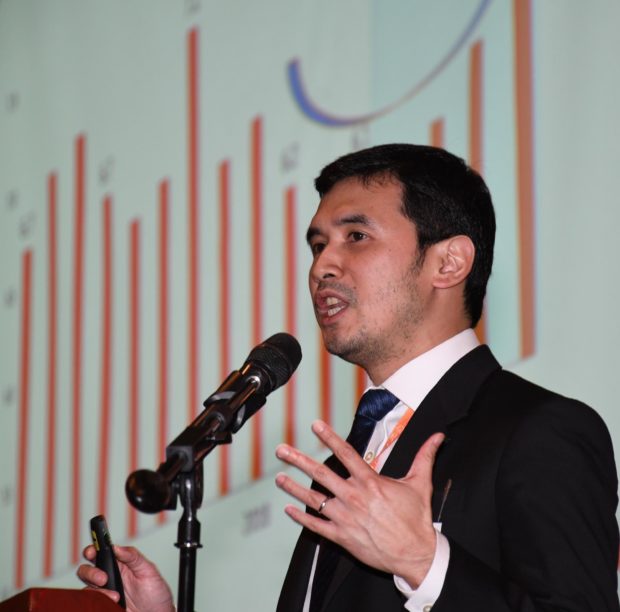BSP seen cutting rates by 50 bps in 2019

ING Philippines economist Nicholas Mapa
The Bangko Sentral ng Pilipinas (BSP) may cut its key interest rates by 50 basis points this year, taking advantage of easing inflation and contributing to a “decent” pace of economic growth, an economist from Dutch financial giant ING said.
ING Philippines economist Nicholas Mapa said in a briefing yesterday that after last year’s spike in consumer prices, inflation would return to the BSP’s target range of 2 to 4 percent this year, leaving room for the central bank to slash its overnight policy rates on top of further cuts in the reserve requirement, or the amount of cash and liquid assets that banks were obliged to maintain.
The domestic economy is likely to grow by 6.3 percent this year compared to last year’s 6.2 percent, Mapa said.
In the first half of the year, Mapa said the Philippines could encounter some “speed bumps” as the lagged effects of last year’s interest rate hikes and surge in inflation would gnaw on consumer spending. At the same time, he noted that the mid-term election spending would be offset by the government’s project ban.
“For growth, you’ve got to look a long way to find an economy that grows as fast as the Philippines. Demographic dividend story is definitely a part of that. There are other economies in the region that come close but still, 6-something (percent) growth is hard to match,” said Robert Carnell, ING chief economist and head of Asia-Pacific research.
The slowing growth in China, Carnell said would “leave the Philippines one of the fastest growing economies in the region in a world where, frankly, there isn’t that much growth.”
Having said that, Carnell said one issue to be cautious about was the country’s chronic trade deficit. This is a “nagging” concern that could make the country susceptible whenever the US dollar is on a resurgence or whenever global markets turn jittery on emerging markets, he said.
This year will likely be a “tale of two halves,” Mapa said, with domestic growth likely accelerating in the second half after a sluggish first half.
ING sees year-on-year gross domestic product (GDP) growth at 5.8 percent in the first quarter, eventually picking to 6.1 percent in the second quarter, 6.3 percent in the third quarter and 6.4 percent in the fourth quarter. After averaging at 6.3 percent this full year, ING sees GDP growth firming up at 6.4 percent in 2020.
Inflation, on the other hand, is seen to average 3.9 percent in the first quarter, 3.5 percent in the second quarter, 3.3 percent in the third quarter and 3.4 percent in the fourth quarter.
Mapa sees the BSP cutting its overnight borrowing rate twice—the first in May and another by the end of the year. These cuts are seen to bring the key policy rate to 4.25 percent by the fourth quarter.
The reserve requirement ratio is likewise projected to be slashed by 100 basis points to 17 percent this first quarter and further to 16 percent by the third quarter.—DORIS DUMLAO-ABADILLA